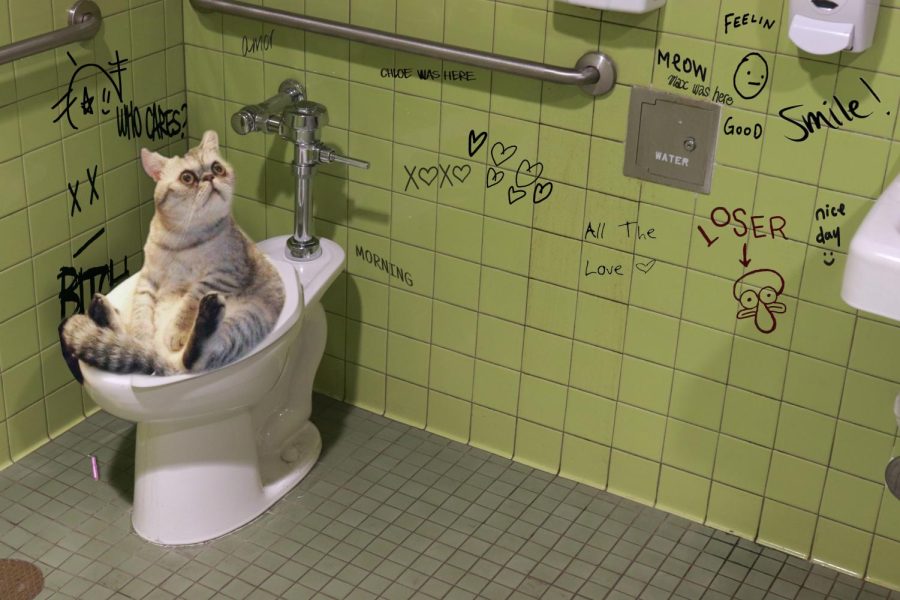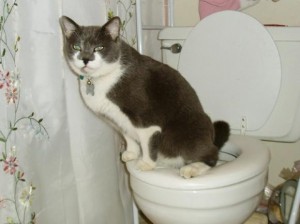Prevent Clogs and Damage: Never Flush Cat Poop Down Your Toilet - Professional Insights
Prevent Clogs and Damage: Never Flush Cat Poop Down Your Toilet - Professional Insights
Blog Article
Here below you can get some awesome points on the subject of How to Dispose of Cat Poop and Litter Without Plastic Bags.

Introduction
As cat proprietors, it's important to be mindful of just how we dispose of our feline friends' waste. While it might seem practical to flush feline poop down the commode, this method can have detrimental repercussions for both the atmosphere and human wellness.
Environmental Impact
Purging cat poop presents harmful microorganisms and bloodsuckers into the water, posing a considerable risk to marine ecosystems. These pollutants can adversely impact marine life and concession water quality.
Health and wellness Risks
Along with ecological issues, purging cat waste can likewise present health risks to people. Pet cat feces may include Toxoplasma gondii, a bloodsucker that can create toxoplasmosis-- a possibly severe ailment, particularly for expecting females and people with damaged immune systems.
Alternatives to Flushing
Luckily, there are more secure and extra responsible methods to take care of feline poop. Take into consideration the following alternatives:
1. Scoop and Dispose in Trash
The most usual approach of throwing away pet cat poop is to scoop it into a naturally degradable bag and toss it in the trash. Make certain to utilize a dedicated litter scoop and take care of the waste quickly.
2. Use Biodegradable Litter
Choose naturally degradable feline trash made from products such as corn or wheat. These clutters are eco-friendly and can be securely disposed of in the trash.
3. Bury in the Yard
If you have a backyard, take into consideration hiding pet cat waste in a marked location away from vegetable gardens and water sources. Make sure to dig deep sufficient to avoid contamination of groundwater.
4. Set Up a Pet Waste Disposal System
Purchase an animal waste disposal system specifically designed for cat waste. These systems utilize enzymes to break down the waste, reducing smell and ecological influence.
Final thought
Accountable animal ownership expands past supplying food and shelter-- it additionally includes appropriate waste management. By avoiding purging cat poop down the toilet and going with alternate disposal methods, we can minimize our ecological footprint and secure human health.
Why You Should Never Flush Cat Poop Down the Toilet
A rose by any other name might smell as sweet, but not all poop is created equal. Toilets, and our sewage systems, are designed for human excrement, not animal waste. It might seem like it couldn’t hurt to toss cat feces into the loo, but it’s not a good idea to flush cat poop in the toilet.
First and foremost, assuming your cat uses a litter box, any waste is going to have litter on it. And even the smallest amount of litter can wreak havoc on plumbing.
Over time, small amounts build up, filling up your septic system. Most litter sold today is clumping; it is made from a type of clay that hardens when it gets wet. Ever tried to scrape old clumps from the bottom of a litter box? You know just how cement-hard it can get!
Now imagine just a small clump of that stuck in your pipes. A simple de-clogger like Drano isn’t going to cut it. And that means it’s going to cost you big time to fix it.
Parasitic Contamination
Believe it or not, your healthy kitty may be harboring a nasty parasite. Only cats excrete Toxoplasma in their feces. Yet it rarely causes serious health issues in the cats that are infected. Most people will be fine too if infected. Only pregnant women and people with compromised immune systems are at risk. (If you’ve ever heard how women who are expecting are excused from litter cleaning duty, Toxoplasma is why.)
But other animals may have a problem if infected with the parasite. And human water treatment systems aren’t designed to handle it. As a result, the systems don’t remove the parasite before discharging wastewater into local waterways. Fish, shellfish, and other marine life — otters in particular — are susceptible to toxoplasma. If exposed, most will end up with brain damage and many will die.
Depending on the species of fish, they may end up on someone’s fish hook and, ultimately on someone’s dinner plate. If that someone has a chronic illness, they’re at risk.
Skip the Toilet Training
We know there are folks out there who like to toilet train their cats. And we give them props, it takes a lot of work. But thanks to the toxoplasma, it’s not a good idea.

We had been shown that report about How to Dispose of Cat Poop and Litter Without Plastic Bags from a good friend on another website. Sharing is nice. One never knows, you could be doing someone a favor. Thanks so much for taking the time to read it.
Click Here! Report this page